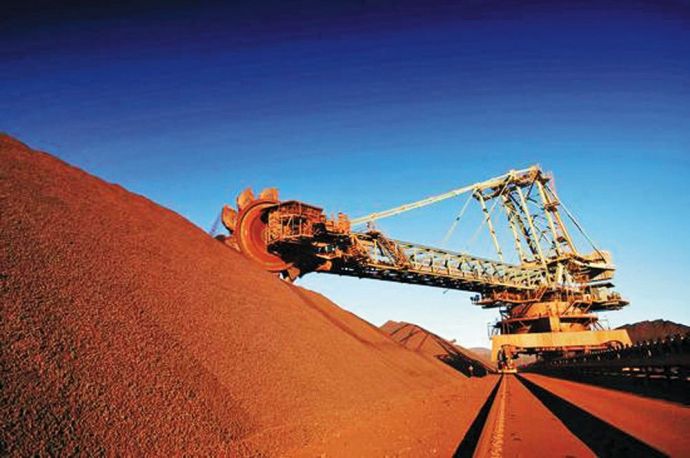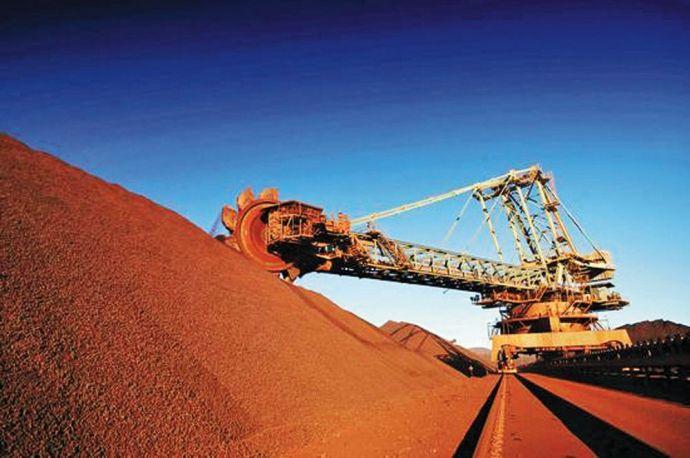
BEIJING -- Mining giant BHP said it expects a slightly softer and more volatile iron ore market in 2018 given construction is likely to slow down this year worldwide.
"Given the strong performance in 2017, we expect some slowdown in activities into 2018, with construction set to still grow but at a slower pace, machinery a little bit slower than last year and infrastructure will continue to be strong," said Arnoud Balhuizen, chief commercial officer of BHP.
"So if you put all that together, you'll probably see a market which is slightly softer in 2018 than 2017."
However, Balhuizen said he believed China's move to trim overcapacity in its steel industry would in turn benefit his group and others like it, instead of hurting their business interests.
"The focus on high-quality products under the circumstances might give a chance to companies like BHP," he said.
China is targeting the massive overcapacity in its iron and steel sector and has vowed to continue with its overcapacity reduction this year. While some commentators and analysts have suggested the initiative could drag on iron demand in the world's second-biggest economy, Balhuizen said he was not concerned.
"We have seen the change in the viewpoint of the Chinese leadership around the speed of economic growth toward quality and sustainability, that of course has had a major impact on the steel industry in the last year," he said.
"The strategy will be supported by those mining companies, of which BHP is one, with the highest quality, most stability, nearby resources and a very short transportation period."
The trends toward sustainability, lower emissions and higher productivity are necessitating high quality resources, and BHP is a company with lots of high-quality resources. "So it's a natural partnership we have with our Chinese customers," Balhuizen said. He added relationships between the company and its customers will remain a key focus area for the upcoming year.
BHP and the Institute of Market Economy of the State Council's Development Research Center signed a two-year agreement in January.
Together, they aim to support comprehensive research into the next phase of China's urbanization under a new round of technological revolution. Balhuizen described the cooperation as an example of how BHP wants to connect and work in a sustainable and long-term manner to contribute to China's urbanization progress.
The company has also reached an agreement with Peking University to help break down the barriers to using carbon capture and storage technology in the Chinese steel industry, in a move that will accelerate commercial projects.
BHP said it expects projects linked to the Belt and Road Initiative will drive up to 150 million metric tons of incremental steel demand, which will positively affect BHP's global business layout.
The demand for infrastructure investment in countries and regions participating in the initiative is huge, and such investment will drive significant demand for construction materials and equipment, leading to an increase in direct and indirect demand for steel, Balhuizen said.
"This is a considerable lift," he said.




 A single purchase
A single purchase









